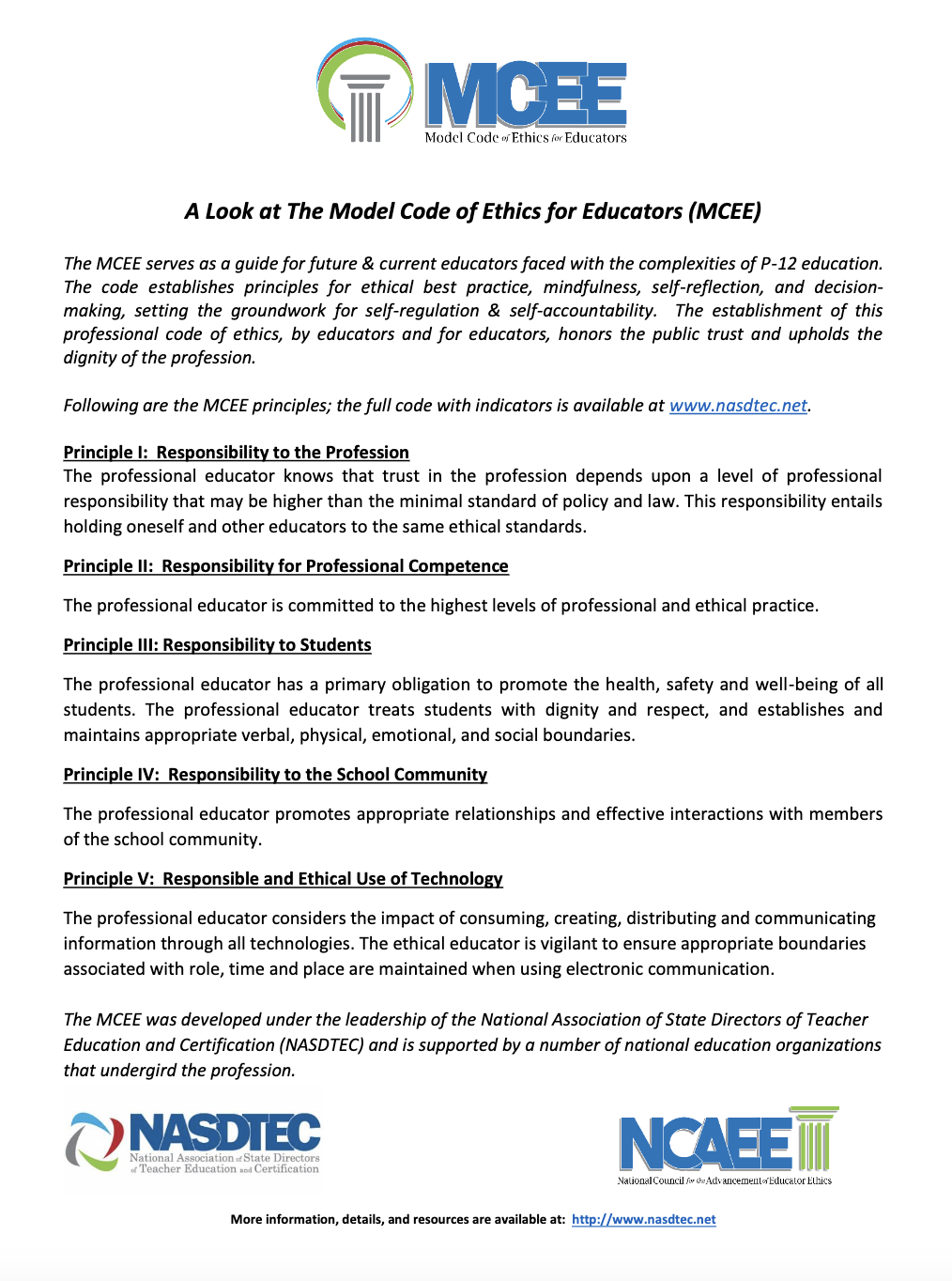MCEE Rationale
The schooling environment may appear to those outside the profession as a stronghold of standardization, but educators will tell you they face an extraordinary number of ambiguous situations with decision-points that are as varied and unique as the students and families they serve. And within that space, it’s rarely about right or wrong, but how to best navigate the gray.
Perhaps that is why the education profession has often tiptoed around the topic of professional ethics, or even worse, confused it with other terms such as dispositions, codes of conduct or morality. The grayness is ambiguous, murky, and at times uncomfortable to discuss. It demands an honest conversation.
Medicine, law, mental health and their counterparts in a variety of other fields have had established codes of ethics for decades, resulting in discussions that inform and frame a collective professional decision-making process. A large part of professional ethics is to provide a shared language enabling practitioners to have difficult conversations without defaulting to a “right” or “wrong” binary lexicon. Professional ethics doesn’t limit decision-making, but rather provides guidelines that empower practitioners to carefully and thoughtfully utilize the fair decision-making process that each situation deserves.
Troy Hutchings, Ed.D.
Ethics and Educators
It’s All About Right and Wrong, Right?
September 24, 2019
It’s Time; It’s Now
After 150 years of public school history in America educators finally, have a Code of Ethics (as opposed to the Code of Conduct most believe to be a Code of Ethics). Thanks to a wonderful group of practitioners who worked nearly a year and a half to bring the MCEE to life. Please share this video with your colleagues and friends.
For more information on the development of the MCEE, please go to nasdtec.net.
There is a movement growing within the greater P-12 and educator preparation educational communities to ensure educators and prospective educators understand how professional decision-making can impact the safety and well-being of children, as well as the culture and mission of the school. This increased focus on examining, understanding, and informing best practice in educator decision-making is a critical part of the mission of the National Association of State Directors of Teacher Education and Certification (NASDTEC).
Most professions have a strong set of principles to guide decision-making around these principles; in fact all other fiduciary professions have articulated clear guidelines for professional ethics. The education profession, however, has not adopted a model code of conduct to assist educators with making ethical decisions and to assist educator preparation program providers (EPPs) in preparing their candidates to make ethical decisions. The time has come for the education profession to adopt a common set of professional principles that inform state policy and practice with regard to supporting practitioners and preparing candidates in ethical understanding and to guide behaviors and decision making.
Read More
